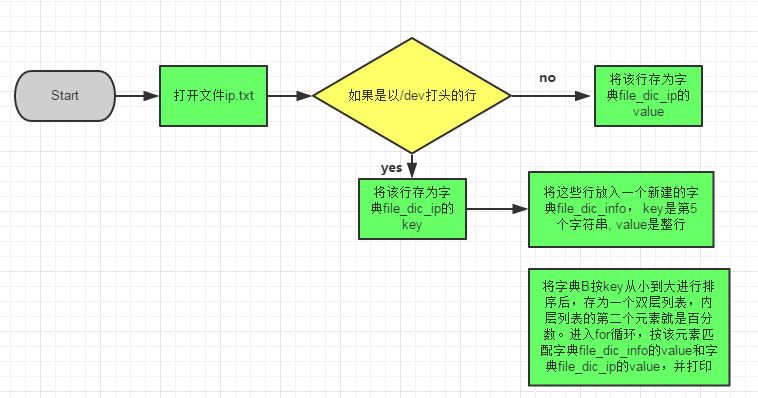朋友用ansible导出了一个文件,文件中包含上千台机器的磁盘信息,他想要知道哪些机器最需要赶紧扩磁盘。思路是,按剩余磁盘空间百分数,从小到大对文本内容重新排序。下面是具体实现。
源文件ip.txt的格式是这样的:
10.1.2.1 224 | success | rc=0 >> /dev/sda1 1.1T 28G 982G 3% /export 10.1.2.1 24 | success | rc=0 >> /dev/sda2 1.6T 15G 1.5T 1% /export
下面是.py文件。运行这个python脚本后,可以生成ip_sorted.txt文件,是经过重排的文件,磁盘剩余空间越小,其机器信息会排在越前面。
#!/bin/bash # -*- coding:utf-8 -*- import os import collections with open('ip.txt','r') as f: file_dic_ip = {} file_dic_info = {} i = 0 for line in f: count = int(os.popen("grep -c '^/dev' ip.txt").read()) while i < count: lines_ip = os.popen("grep -v '^/dev' ip.txt | grep -v '^$' ").read().split('\n') lines_info = os.popen("grep -n '^/dev' ip.txt | awk -F ':' '{print $2}'").read().split('\n') file_dic_ip[lines_info[i]] = lines_ip[i] lines_info_percent = os.popen("grep -n '^/dev' ip.txt | awk -F ' ' '{print $5}'").read().split('%\n') file_dic_info[lines_info_percent[i]] = lines_info[i] i += 1 od = collections.OrderedDict(sorted(file_dic_info.items())) with open('ip_sorted.txt','w') as f: for items in od.items(): f.write(file_dic_ip[items[1]] + '\n' + items[1] + '\n\n')
流程图不太对,将就看看文字讲解吧




